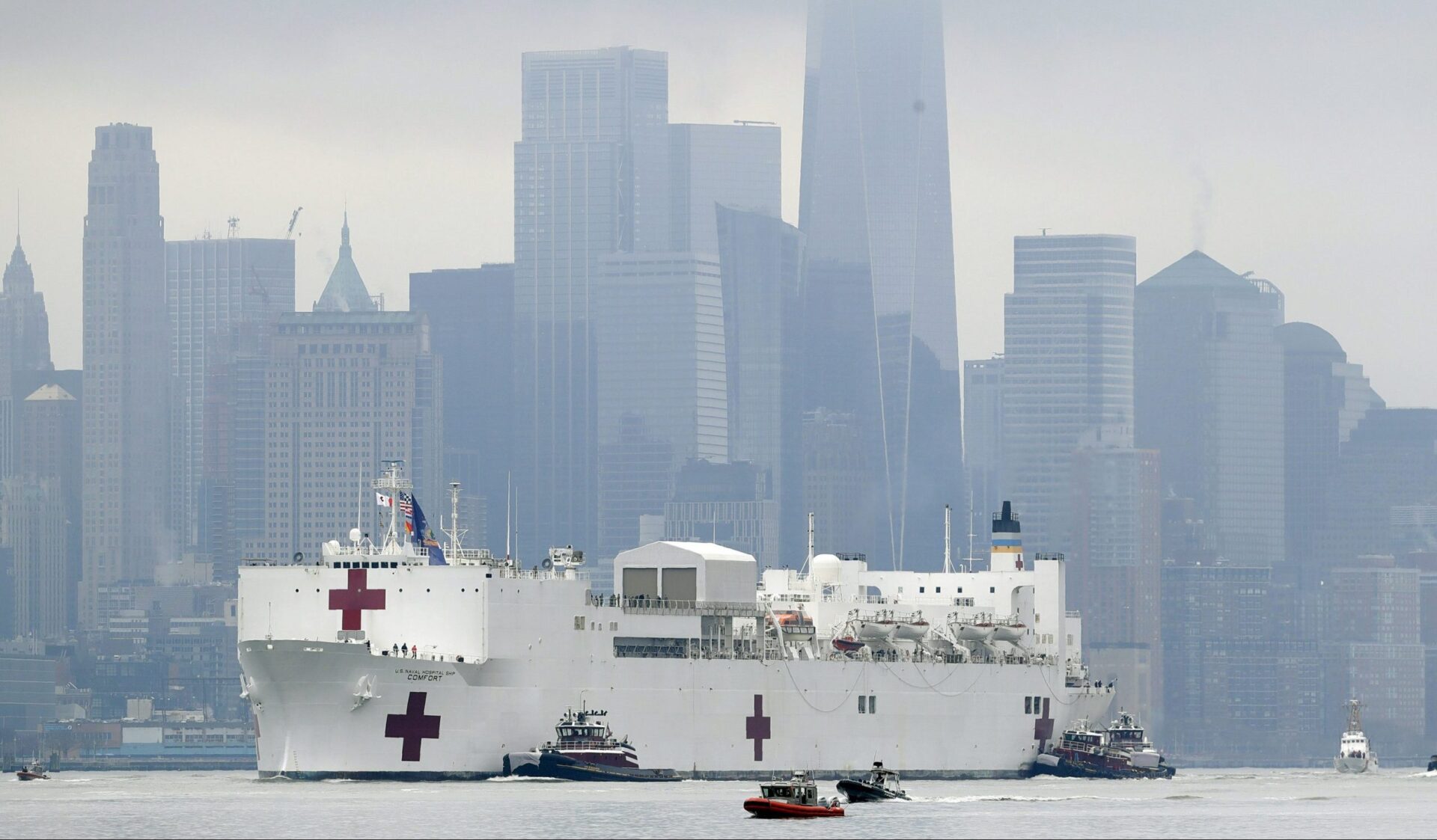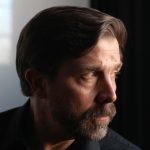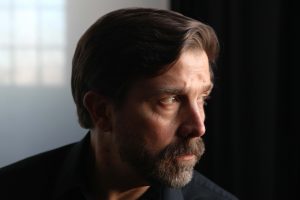Baltimore, MD. Shortly after the 2001 terrorist attacks, Wendell Berry wrote, “The time will soon come when we will not be able to remember the horrors of September 11 without remembering also the unquestioning technological and economic optimism that ended on that day.” This, I fear, was one of the rare times Mr. Berry missed the mark. Collective amnesia is an American strong suit, perhaps even a foundational practice. If the optimism he described then sounds now desperate and strained, like a lifelong fundamentalist approaching a crisis of faith, rumors of its demise have proven greatly exaggerated.
Witness what now passes for public discussion regarding the novel coronavirus pandemic. When politicians tout “game changing” pharmaceuticals and pundits predict an eventual “return to normal,” they repeat two fundamental errors rooted in that unwarranted optimism. First, they mistake the current crisis for an isolated problem to be solved rather than one symptom of a grave underlying malady. Not only does this ignore the pandemic’s likely attendant crises, including the collapse of an already unsustainable world economy and the prospect of nations defaulting on their ballooning public debts, it misses the key role technology and economics played in getting us here. Conspiracy theories aside, technology and global distribution systems did not cause the virus behind COVID-19 to mutate in such consequential ways, but they sped its worldwide dissemination. They did so, furthermore, at a time when many countries, the United States perhaps chief among them, cling to the delusion that humans can manage the planet’s affairs according to our desires, as if our technology-enhanced powers and the earth’s material gifts have no limits.
The second error is the fixed false belief that humanity will invent itself out of any predicament we encounter or create. This is the same wishful thinking behind the popular late nineteenth-century American delusion that the semiarid High Plains could be intensively farmed simply because “rain follows the plow.” The sciences tell us precious little, but the little they tell is precious indeed. Had we heeded what they tell of plagues and pandemics, we would have been better prepared for the current crisis. It was, after all, an expected event, if not predictable in timing or detail. Fortunately for us, this new virus is neither so transmissible as measles nor so often fatal as Ebola. The next pandemic may be less forgiving. We will be forced to reckon with long forgotten limits in the post-COVID-19 world. Judging from our collective failure to reimagine how we might live—and what we will, of necessity, have to live without—in a rapidly warming climate, long term optimism seems out of the question.
As a physician, and therefore a practitioner of an applied science, I am grateful for technologies that enhance my limited power to heal. For the same reasons, I know from experience the truth of Berry’s observation that “medicine is an exact science until applied: application involves intuition, a sense of probability, ‘gut feeling,’ guesswork, and error.” Technologies are tools, inherently neither good nor evil. Their moral value depends on how, where, and when they are applied. These, in turn, are inseparable from more fundamental questions: who is using them and on whom are they being used?
When valuable technologies are scarce, as is now the case with ventilators, personal protective equipment, and certain medications, questions of triage arise. Derived from the French verb, trier, meaning “to cull or sort,” triage acquired its modern meaning on the battlefields of World War I, where wounded soldiers were sorted into three groups: those who would survive even if treatment were delayed, those who would likely die whether treated or not, and those for whom prompt treatment made all the difference. Triage is a practical response to real or perceived limits. Though we prefer to think otherwise, every “health care system” practices triage, making prudential decisions based on its specific set of material goods, patient needs, personnel, practices, experience, and best guesses. Active alcoholics are less likely to receive liver transplants. Critical therapies in limited supply are more likely to go to an otherwise robust fifty-six-year-old woman than a frail man of ninety-eight.
The morality of triage, like that of technology, depends on its application, on who is applying it, and on whom it’s applied. If, as I hope is the case, COVID-19 related medical triage decisions are made with some sense of or concern for health, now is an ideal moment to recall Berry’s assertion that, “the community—in the fullest sense: a place and all its creatures—is the smallest unit of health and that to speak of the health of an isolated individual is a contradiction in terms.” Triage happens in a particular place: the needs and resources of a major US teaching hospital will not be those of a regional hospital in rural Arizona or the mountains of Honduras. Triage guidelines are made by particular people, often those within the health care system who have important knowledge and expertise. Do they, however, speak for the community, Berry’s “smallest unit of health?” Who speaks for those who lack only the necessary credentials? Who will speak for the physically and intellectually disabled? What will our decisions cost all those creaturely things we are taught to think of as the environment, as if we lived and moved and had our being independently of them? Who is willing to say that, in order for our place in the world to be healthy, we must accommodate ourselves to earthly limits and cease altering the world to accommodate our laziness, comfort, and greed? Who will triage our habits of consumption? Who will join Mr. Berry in saying that the natural consequences of our limit-denying “Faustian economics” will soon compel us to live in ways that are not only simpler, but materially poorer?
Perhaps COVID-19 will do what September 11, 2001 did not. Perhaps our unquestioning optimism will die even if and when a safe and effective coronavirus vaccine permits us to rethink the new normal. Perhaps we may still outgrow our habit of forgetting. That depends on how many of us who survive the pandemic remember in all the senses with which Berry invests the word: to retain the hard-earned wisdom of our forebears; to recall and learn from our own limited experience; to acknowledge that we are membered bodies, limited, needful, and interdependent; and to humbly accept our membership in a particular community in a particular time and place. For those of us used to the old dispensation, suddenly remembering our limits may leave us confused, baffled. But as Wendell Berry writes—and here I think he is spot-on—“The mind that is not baffled is not employed. The impeded stream is the one that sings.”





6 comments
D.W. Sabin
My favorite dispirited announcement from those confronting the ongoing challenges of being confined to barracks with their immediate family is:
“When are we going to be able to return to normalcy?”
This is asked without a hint of irony, as if what was happening in the days before the pandemic shut things down was somehow “normal”. I suppose if participating in the World’s Bestest Cargo Cult and Reality Agora is considered “normal” then one might be excused for this rather broad definition of “normal” . I find it a perfect opportunity to engage in a discussion about “normalcy” although am generally looked at as being mad , which quite happily, I am. Not to mention, “abnormal” at a professional grade.
To the current Constitution thumping , self-proclaimed “originalists”, I suggest they might like to find a compendium of the writings of Madison so that they might see how utterly abnormal their current definition of “originalism” is. To those decrying the wages of globalism and the rise of China, I frequently refer them to Ibn Buttata and descriptions of global trade and cultural intercourse networks dating back to the year 1000 or before, between West Africa and China via the Levant and India. To those staking out Local vs. National Straw-men, I steer them toward the Federalist Papers and its forthright distinction between “National” and “Federal” while patiently explaining the simple yet seemingly easy-to-not-get idea of subsidiarity.
I also use it as an opportunity to review what an epic , decades-long misallocation of resources we have been habituated to while creating an epic sprawl of magnificently ugly proportions and if that’s “normal”, it can only end with a defeat into abnormality.
To those prattling on about the current Red State vs. Blue State contretemps, I patiently explain the gift of Tricky Dick’s “Southern Strategy” and then point the confused voter toward a 2017 reprint of Frederick Law Olmsted’s “The Cotton Kingdom” for a good description of how we are doing a fine job of re-creating the Washington of the 1850’s.
Unfortunately, the principle defect in pursuing these very abnormal lines of thought is there has been one very abnormal icon of normalcy that has persisted in this shut down and it is the Internet and Television, our beloved vicarious agora of packaged and marketed ideology wed to agitprop. It becomes a barrier to finding normalcy when what folks watch relentlessly and consider normal is so patently abnormal to the extent of absurdity. Satire is no longer needed.
Best,
D.W. Sabin
David Heddendorf
I found this essay very helpful and insightful amid all the “We’ll get through this” rah-rah. Thanks for writing it.
Beth Dougherty
It is common for admirers of Mr. Berry’s thought to focus so completely on the idea of community membership as to overlook his insistence that such membership arises only in concert with local subsistence farming. Community without food lasts about 48 hours — or less, depending on individual self control. Our small farm powered entirely on local inputs — daily sunlight on chlorophyll — has yet to find that recent events have any effect on its economy, beyond a heightened local demand for our surplus nutrients.
Brian Volck
See, for example:
https://en.wikipedia.org/wiki/Misinformation_related_to_the_2019%E2%80%9320_coronavirus_pandemic
https://www.digitaltrends.com/news/coronavirus-conspiracy-theories-and-myths/
https://www.nature.com/articles/s41591-020-0820-9?fbclid=IwAR0cOVC4i9wyLuODURmxAxWWGOUm9RyzHmzTBA98jI_SR-ou8v-8_MLJgP4
https://www.nytimes.com/2020/04/08/world/europe/coronavirus-conspiracy-theories.html
https://www.nytimes.com/2020/04/10/technology/coronavirus-5g-uk.html
https://thebulletin.org/2020/03/experts-know-the-new-coronavirus-is-not-a-bioweapon-they-disagree-on-whether-it-could-have-leaked-from-a-research-lab/
https://www.forbes.com/sites/brucelee/2020/03/17/covid-19-coronavirus-did-not-come-from-a-lab-study-shows-natural-origins/#4e66aa093728
https://www.theguardian.com/world/2020/apr/13/coronavirus-conspiracy-theories-targeting-muslims-spread-in-india
https://www.jpost.com/Middle-East/Iran-News/Irans-regime-pushes-antisemitic-conspiracies-about-coronavirus-620212
https://www.cbc.ca/news/canada/manitoba/china-coronavirus-online-chatter-conspiracy-1.5442376
Brian
Each of those are different. You were honestly referring to each and every one of those? I doubt it.
Brian
“Conspiracy theories aside”
Please clarify what you’re referring to.
Comments are closed.